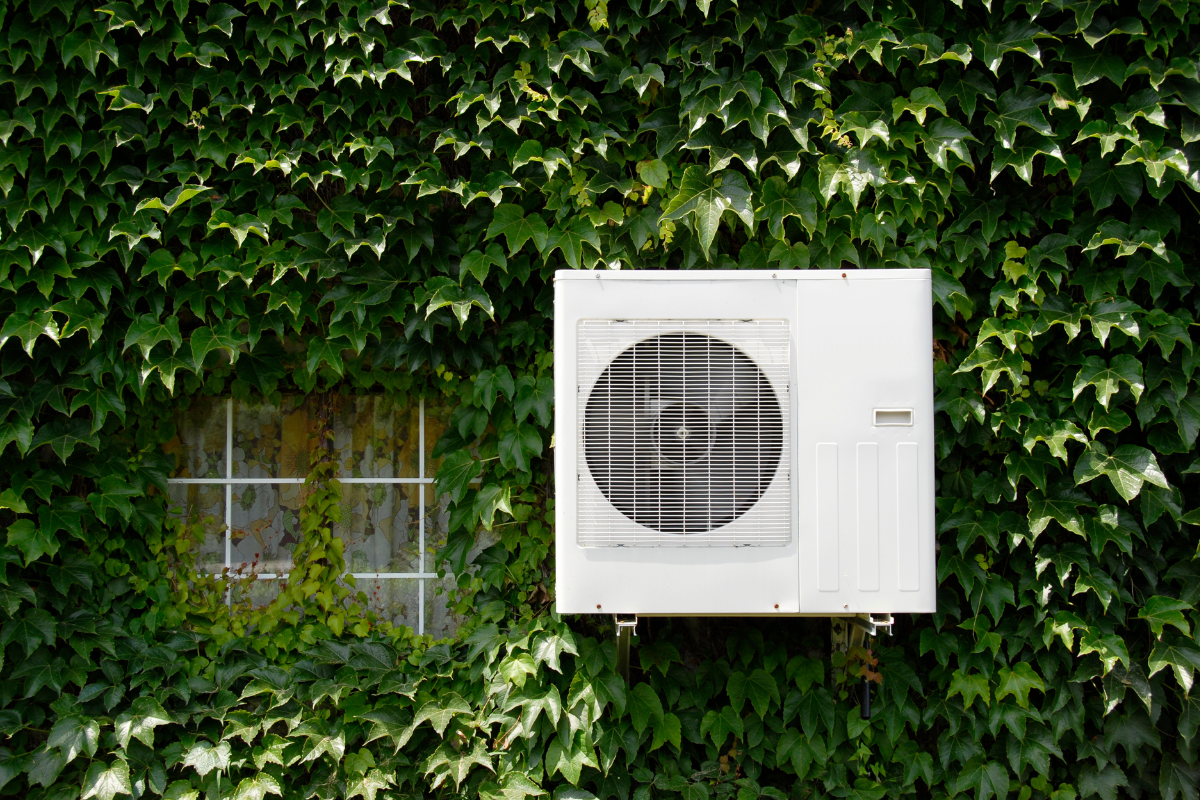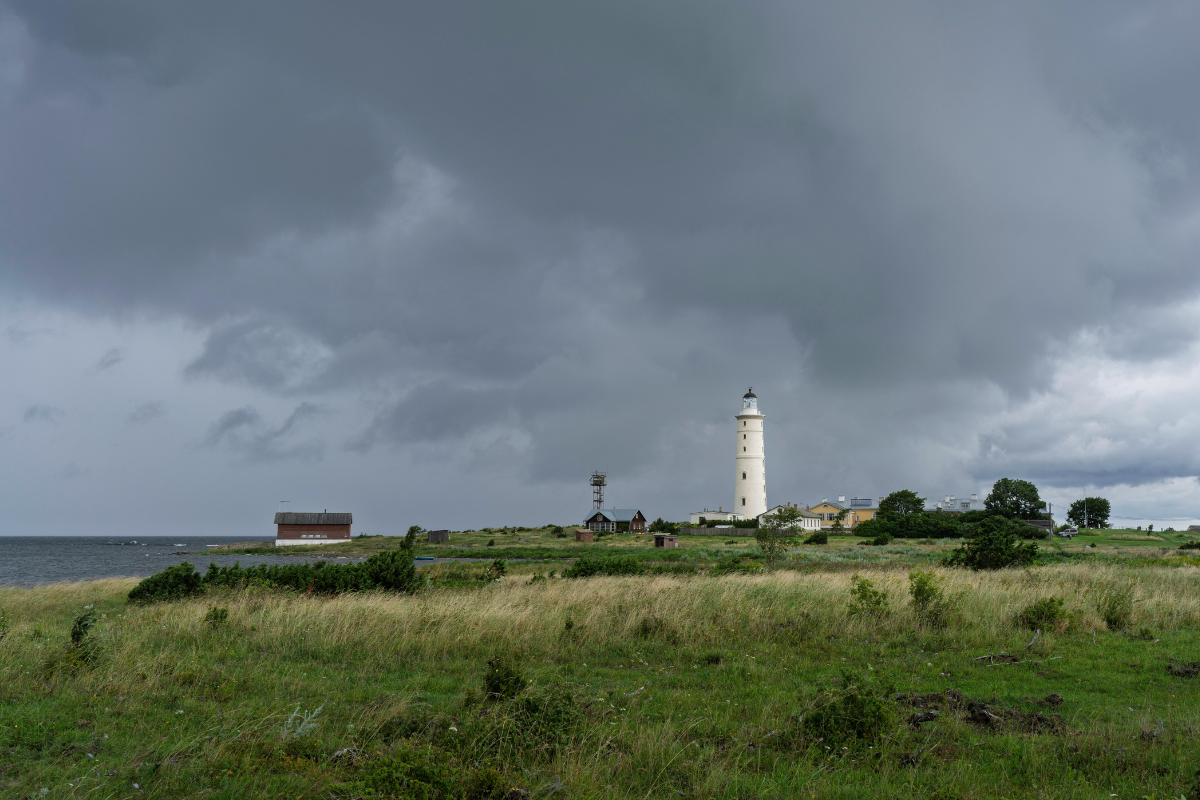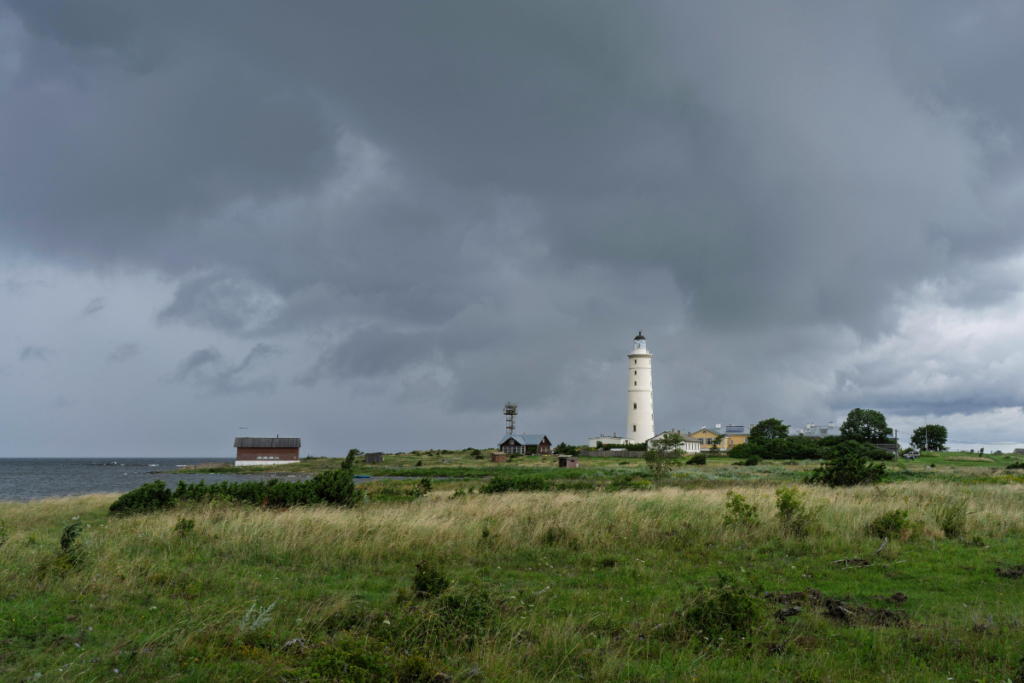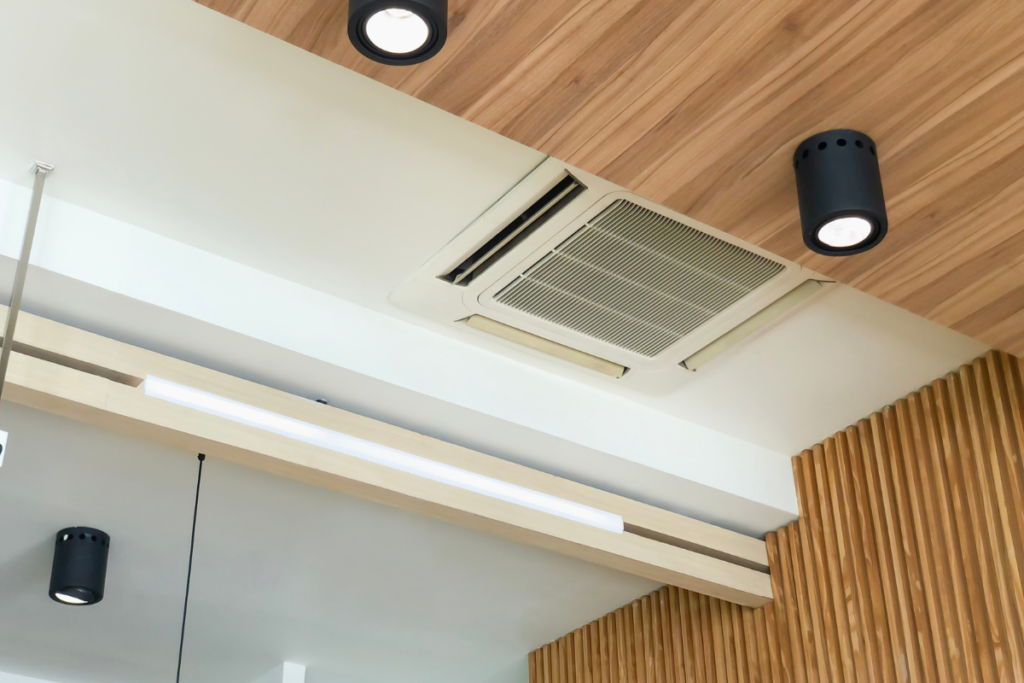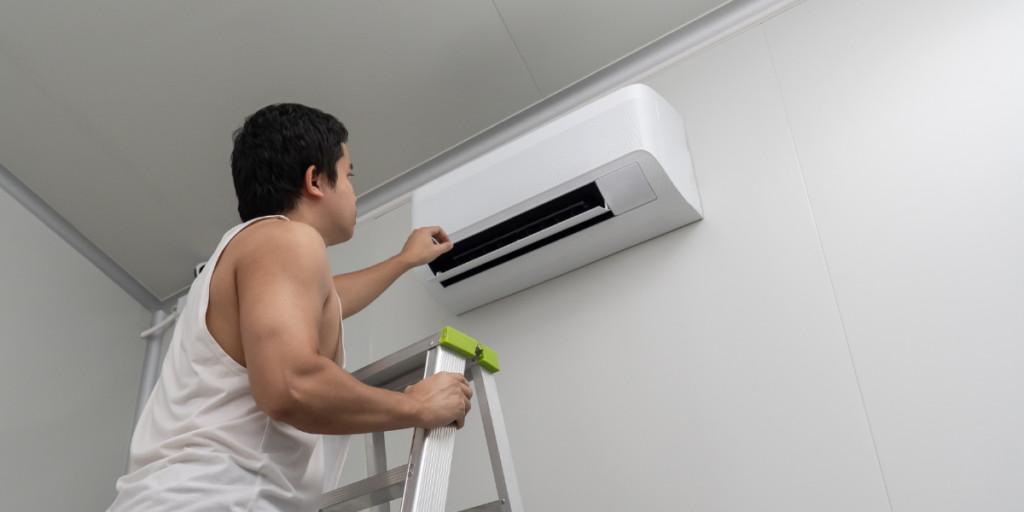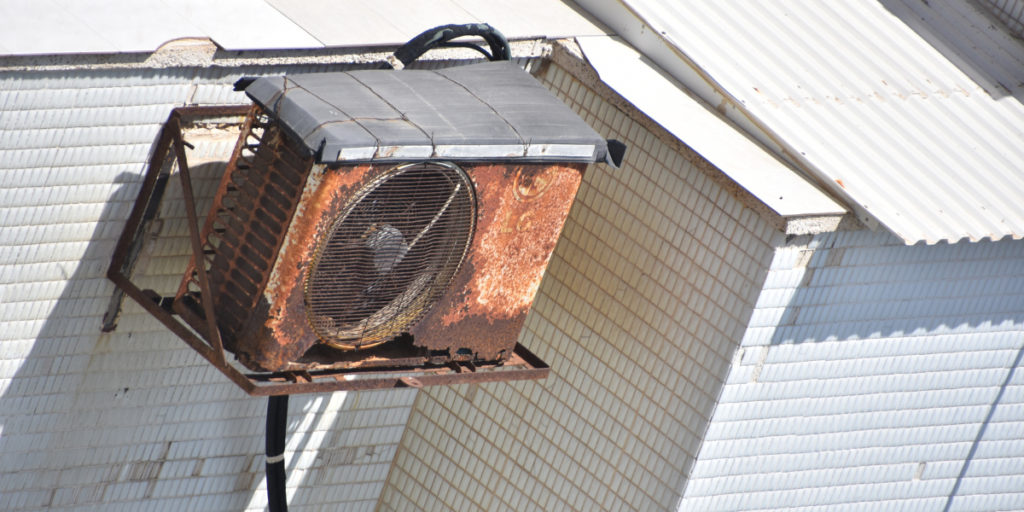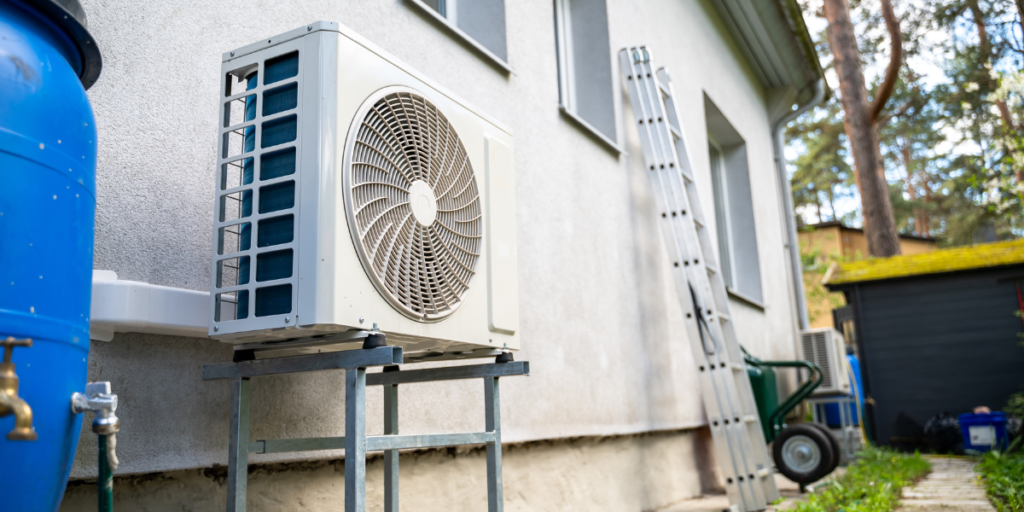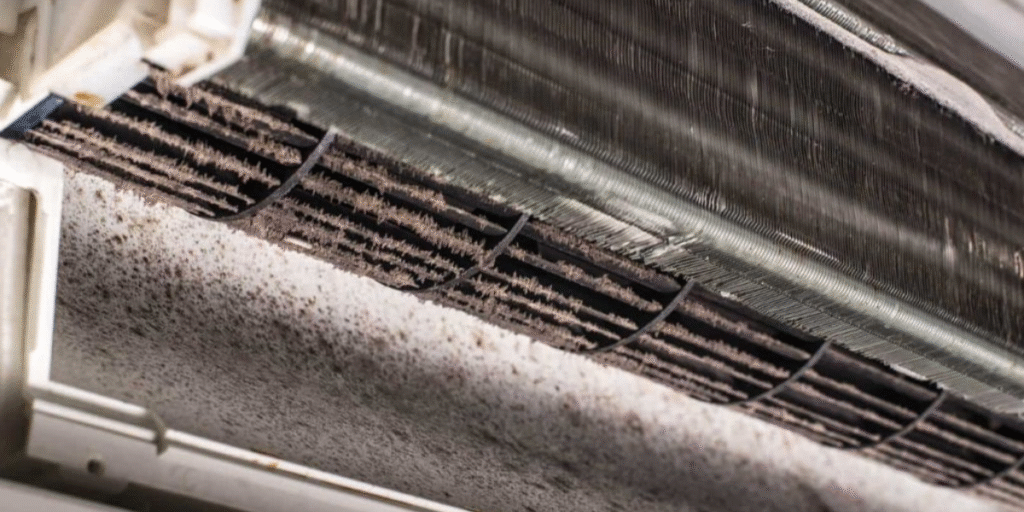For homeowners on the Gold Coast, where salty sea air and humidity are part of everyday life, finding a rusty outdoor air conditioner unit is a common concern. While a few brown patches might seem harmless, corrosion can quickly spread and reduce your system’s efficiency – or worse, cause serious damage. As your trusted experts in air conditioning Gold Coast, DEEPCHILL explains what causes rust, how it affects your system, and the best ways to fix and prevent it.
Table of contents
Causes of rust in the outdoor air conditioner unit
1. Environmental factors
The Gold Coast’s coastal climate plays a major role in outdoor unit rust.
High humidity, salty air, and regular rain accelerate the oxidation process, especially when metal parts are exposed. Salt particles in the air cling to the condenser fins and cabinet, breaking down protective coatings and creating the perfect conditions for rust to form.
If your property is near the beach or in a high-moisture area, this risk increases dramatically. Even overnight dew combined with temperature changes can lead to condensation that slowly corrodes metal components.
2. Material quality
Not all air conditioner units are made with the same quality materials. Cheaper models often use thinner metal sheets or lack durable anti-corrosion coatings.
If the outdoor casing, screws, or condenser coils are made from low-grade materials, they are much more likely to rust – especially when exposed to the Gold Coast’s salty air and occasional storms.
Premium brands like Daikin or Fujitsu include special anti-corrosion treatments to extend lifespan. But even so, without proper care, any unit can begin to show signs of wear over time.
3. Improper maintenance
Lack of maintenance is another major cause of corrosion.
When dust, salt, and organic matter build up on the condenser surface, they hold moisture against the metal. Over time, this trapped moisture leads to oxidation and rust.
Using harsh cleaning chemicals or metal brushes can also strip off the protective coating, accelerating the damage instead of preventing it.
That’s why regular servicing from a professional air conditioning Gold Coast technician is essential to remove contaminants safely and check for early signs of rust.
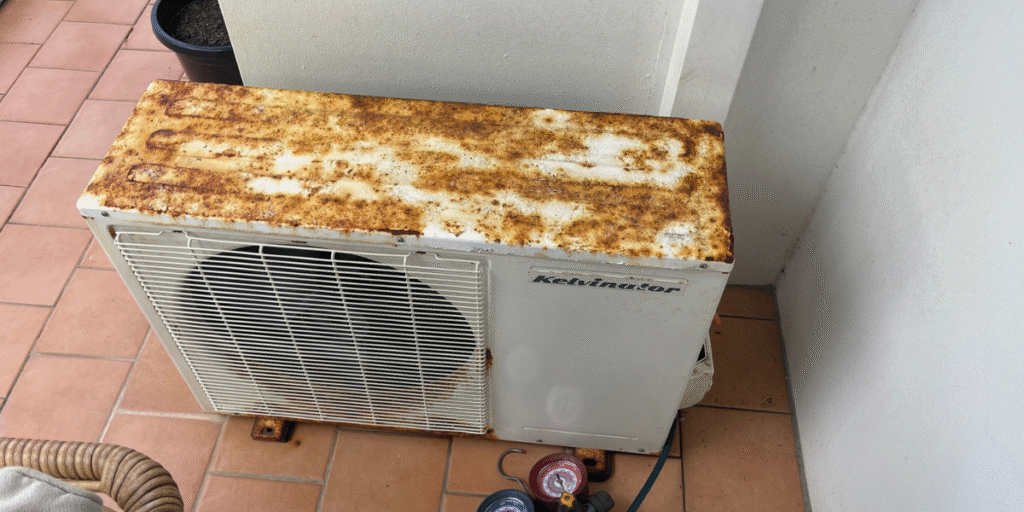
Consequences of a rusty outdoor unit
Rust may start as a cosmetic issue, but it can lead to serious functional problems:
- Reduced heat transfer efficiency: Corroded fins can’t release heat properly, forcing the compressor to work harder.
- Higher energy bills: A struggling system consumes more power to maintain cooling performance.
- Premature breakdowns: Severe corrosion can damage internal wiring, refrigerant lines, or fan motors.
- Shortened lifespan: Unchecked rust often spreads and weakens the entire structure, leading to costly replacements.
In the humid coastal conditions of the Gold Coast, corrosion can advance quickly, especially if the unit isn’t serviced regularly.
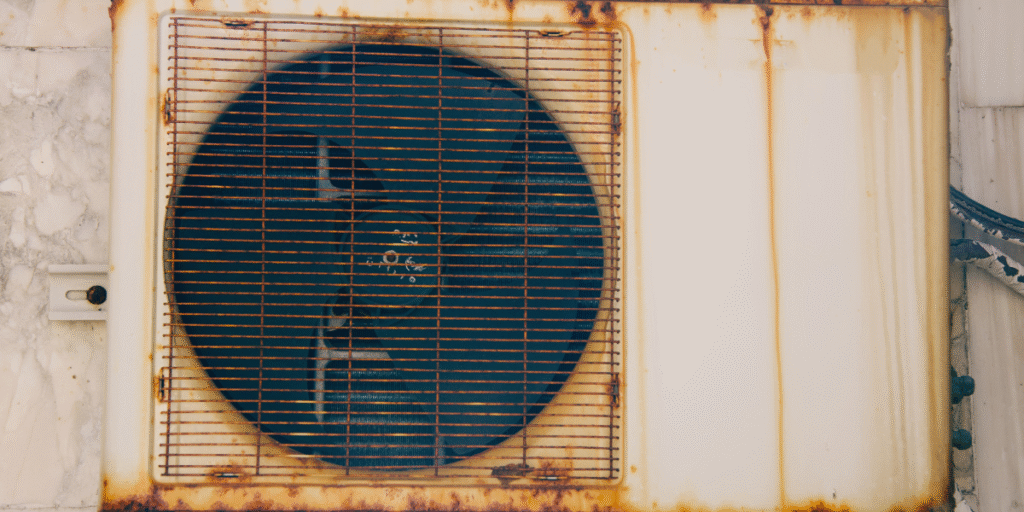
How to fix rust on the outdoor unit
If you’ve noticed rust patches on your outdoor air conditioner, act quickly before the damage worsens. Here’s how to handle it safely:
1. Clean the affected areas
Turn off the power supply first. Then gently clean the rusted surfaces using a soft brush and mild detergent. Avoid strong chemicals or high-pressure sprays that can damage delicate parts.
2. Remove surface rust
For light corrosion, a fine-grit sandpaper can remove rust without harming the metal underneath. Wipe off all debris after sanding.
3. Apply anti-corrosion coating
Once clean, apply a rust converter or anti-corrosion spray to stop oxidation from spreading. Follow this with a protective outdoor paint or specialised AC coating for extra protection.
4. Replace severely damaged parts
If the condenser coils, panels, or screws are heavily corroded, contact a licensed air conditioning Gold Coast technician. They can replace damaged components, recoat exposed metal, and ensure proper system performance.
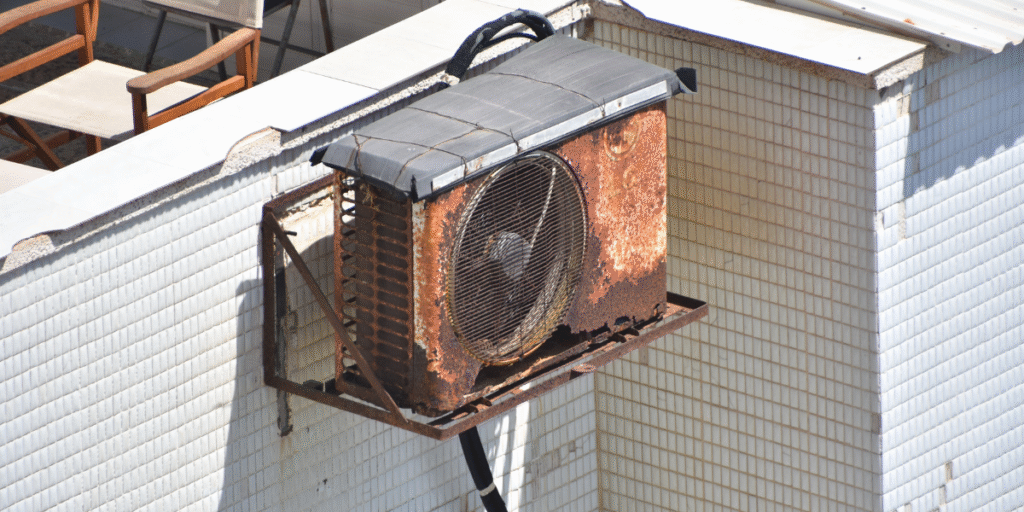
How to prevent future rust
- Schedule professional maintenance at least once a year – especially before summer.
- Use a corrosion-resistant outdoor cover or housing that still allows airflow.
- Avoid installing the unit too close to garden sprinklers, gutters, or areas exposed to salt spray.
- Ask your technician about applying anti-corrosion coatings during servicing.
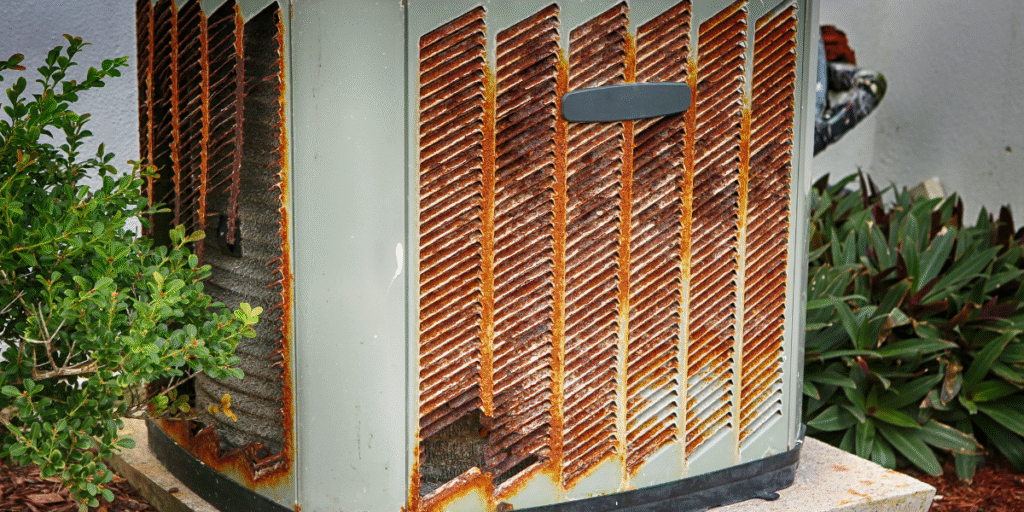
Conclusion
A rusty outdoor air conditioner unit isn’t just an eyesore – it’s a sign that your system may be under stress.
By understanding the causes and taking early action, you can extend your air conditioner’s lifespan, maintain efficiency, and save on costly repairs.
If you notice signs of rust or corrosion, contact DEEPCHILL – your trusted experts in air conditioning Gold Coast. Our technicians can inspect, treat, and protect your system so it stays in top condition year-round.

